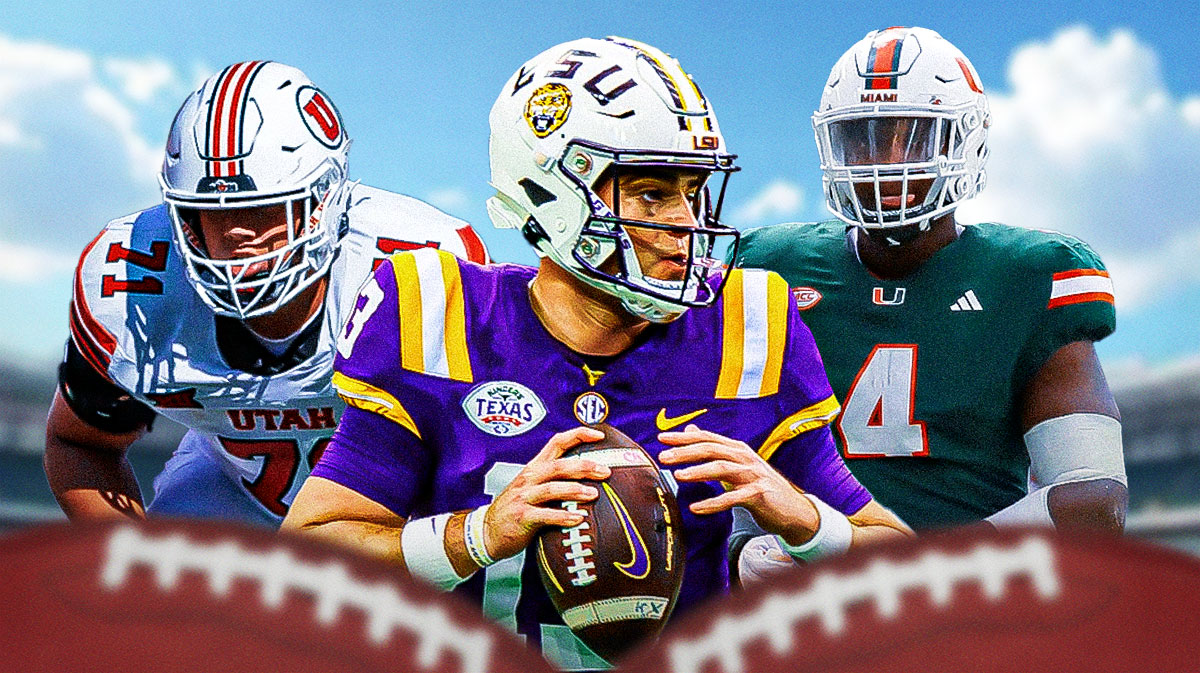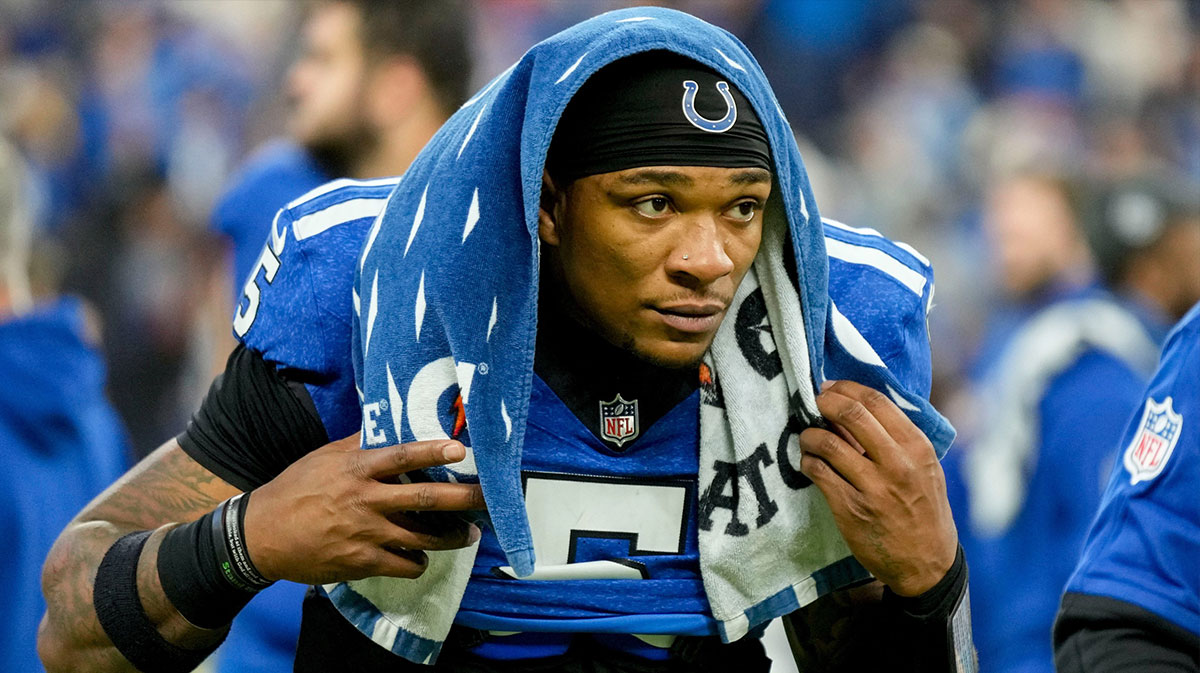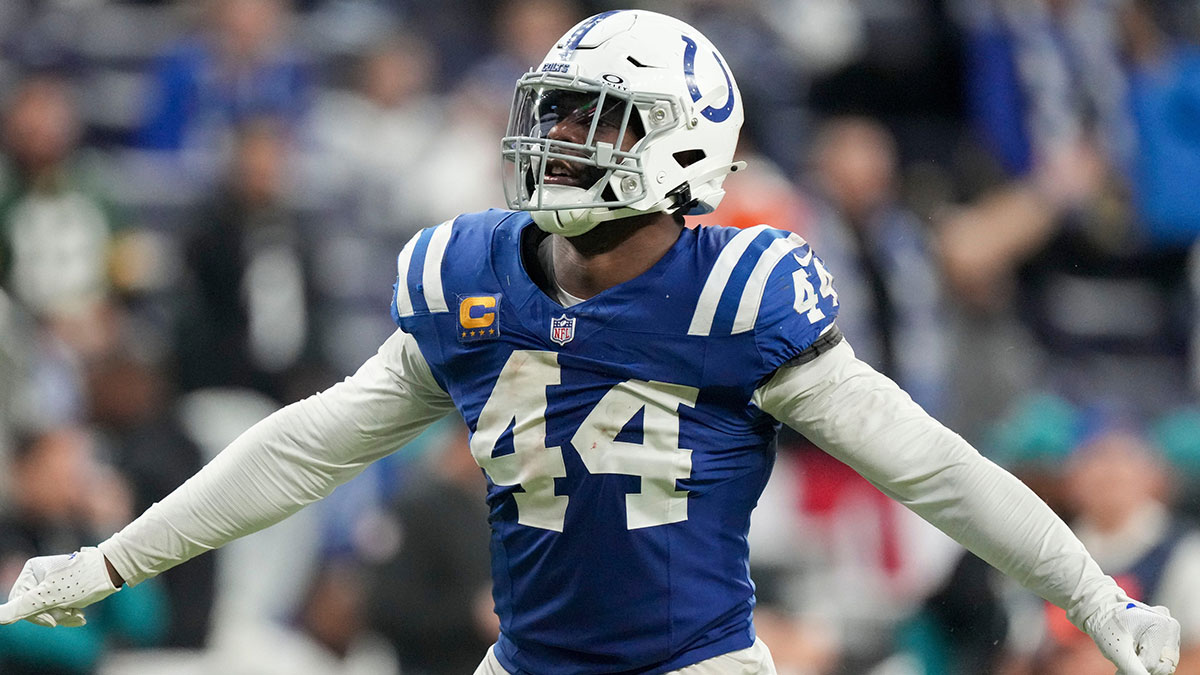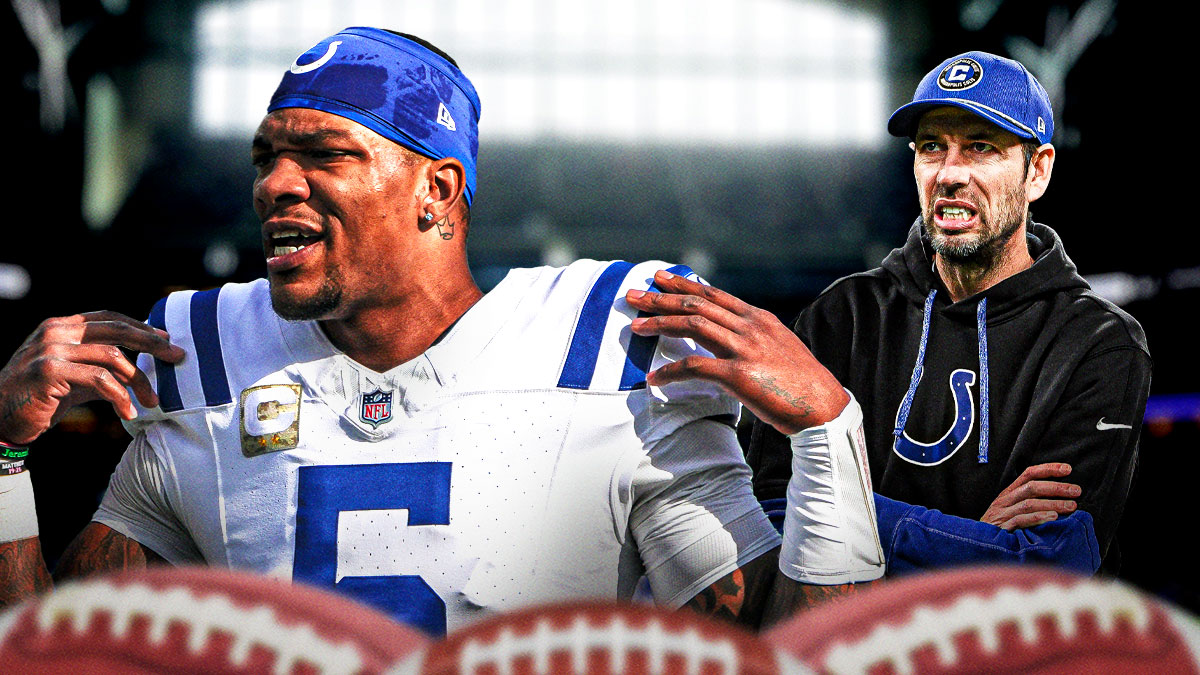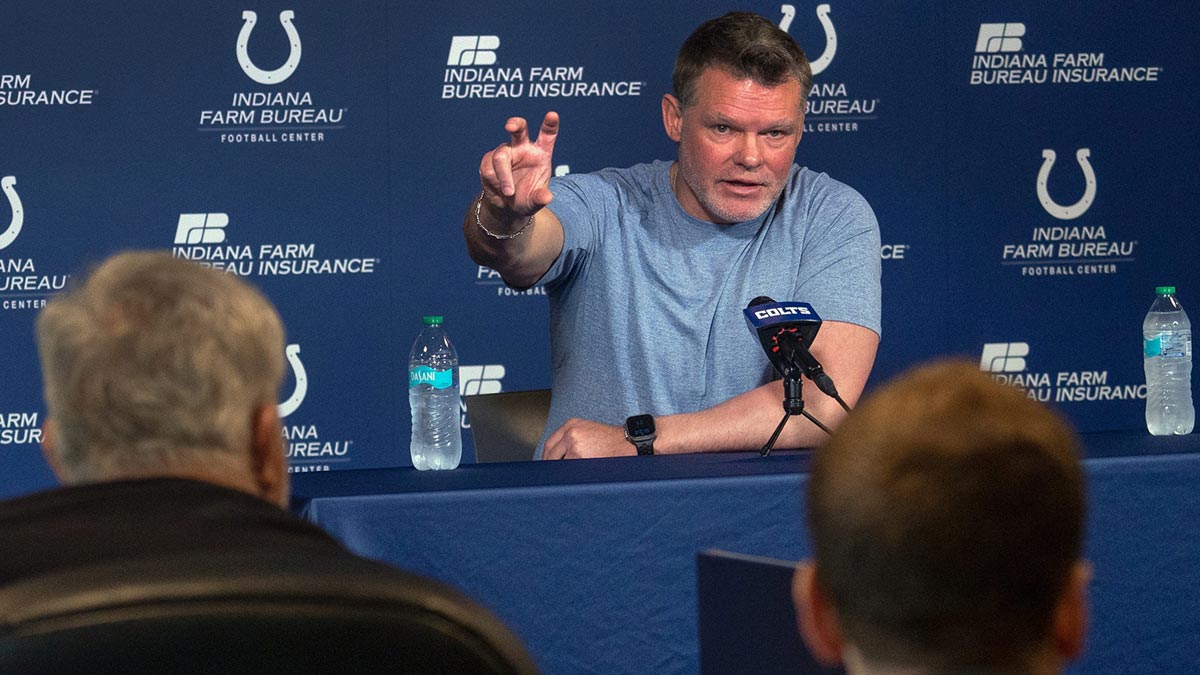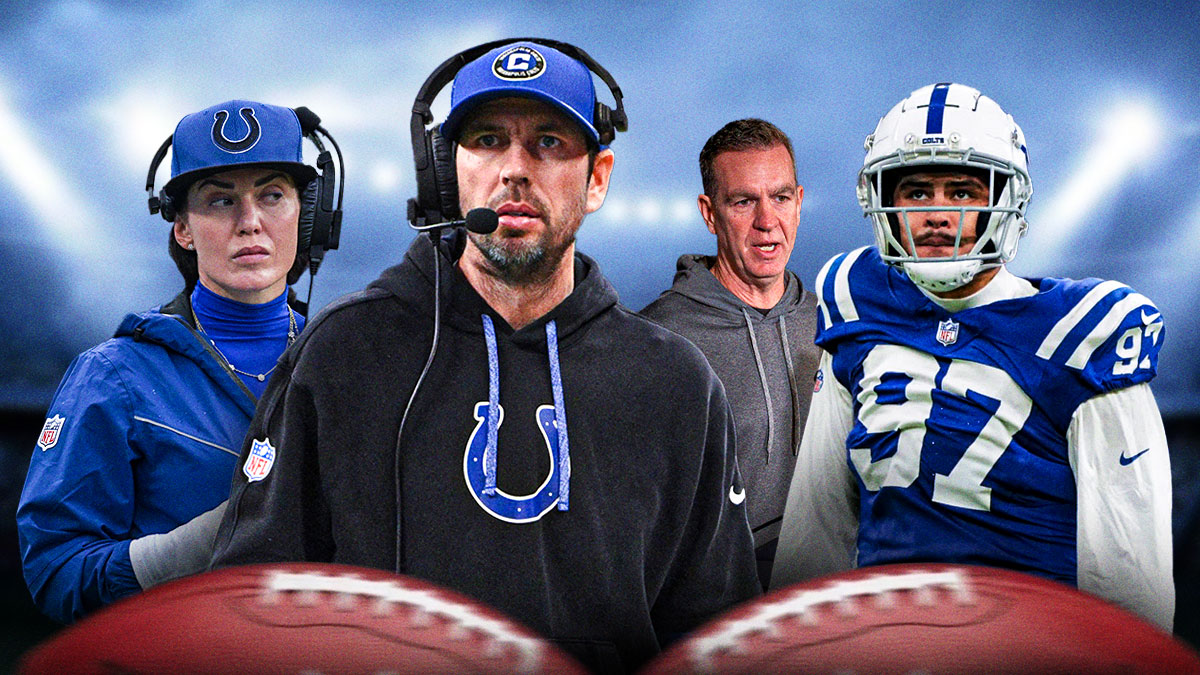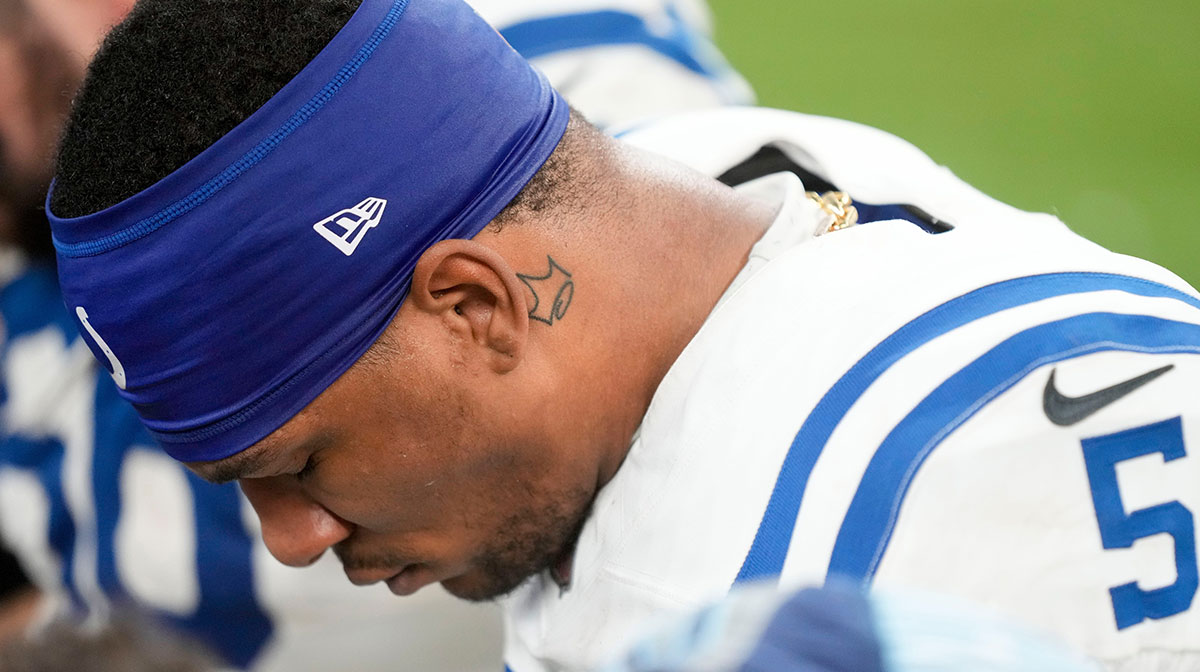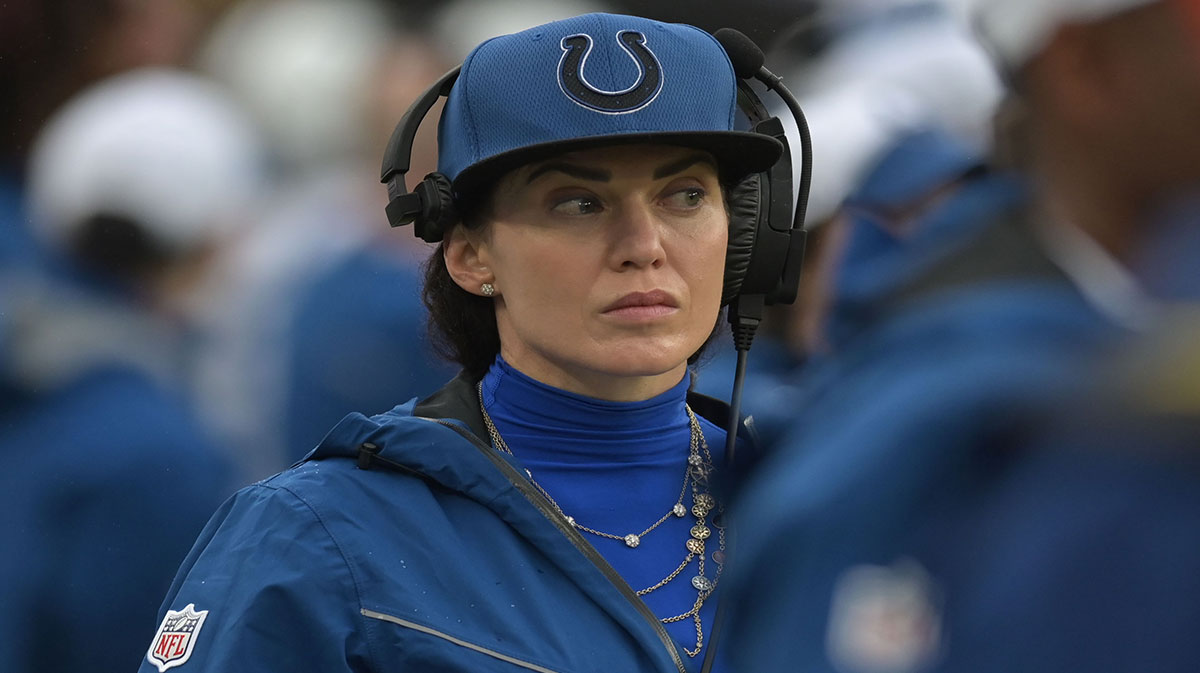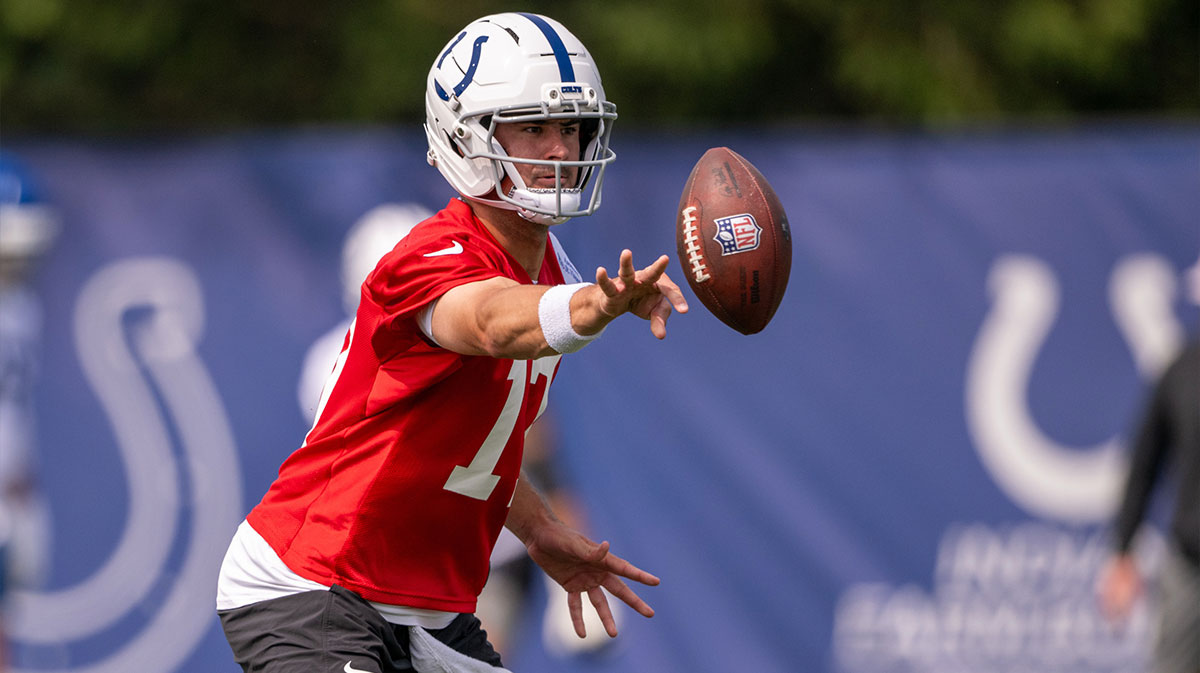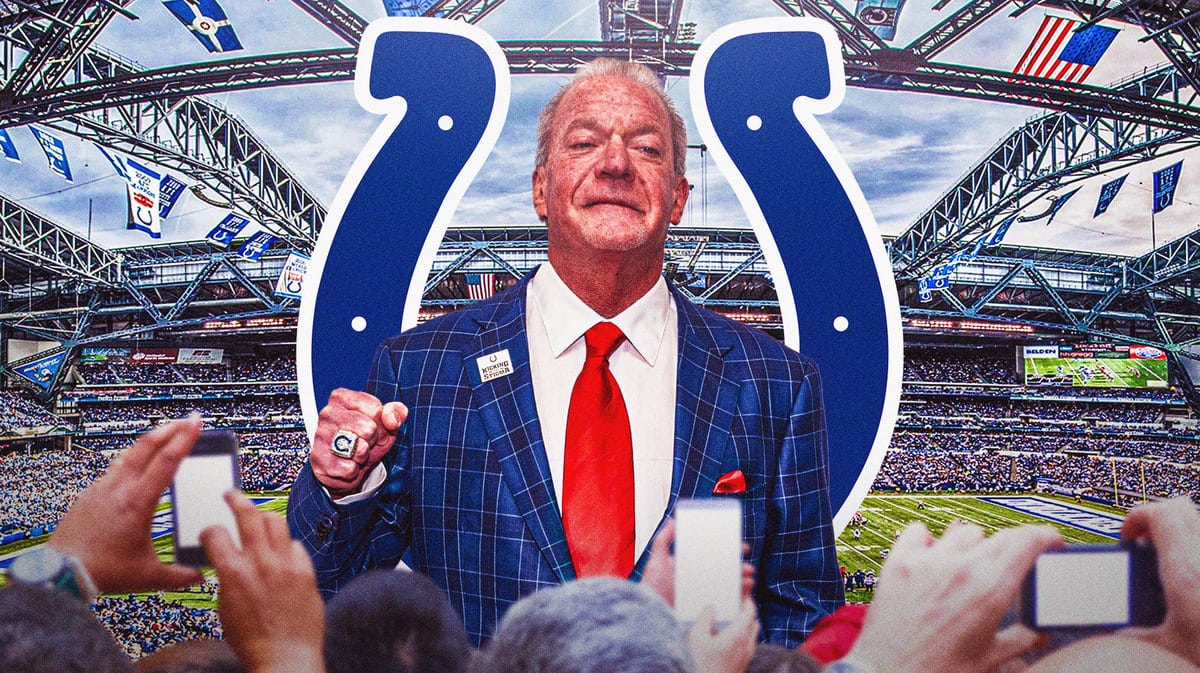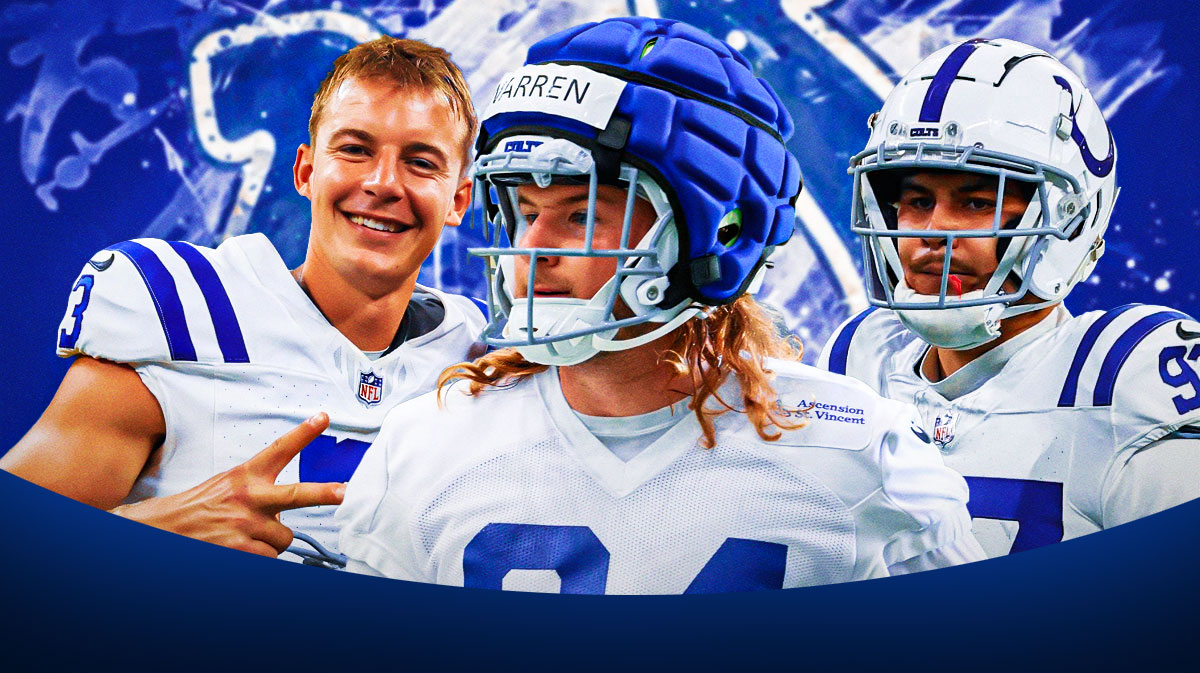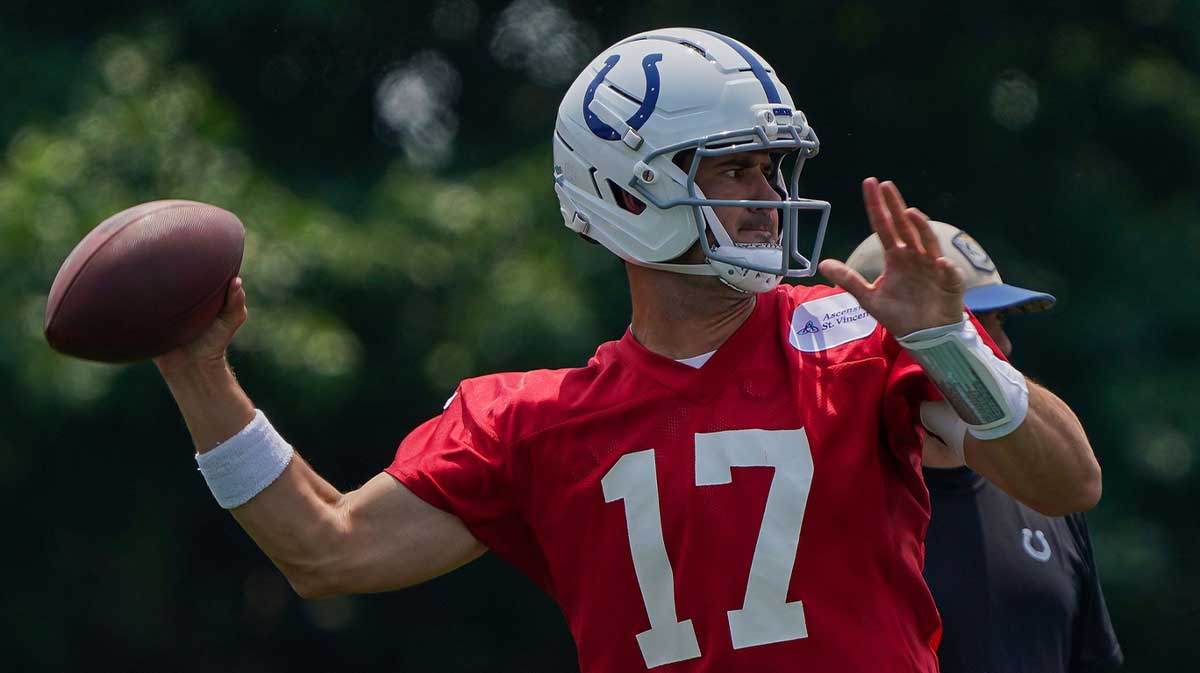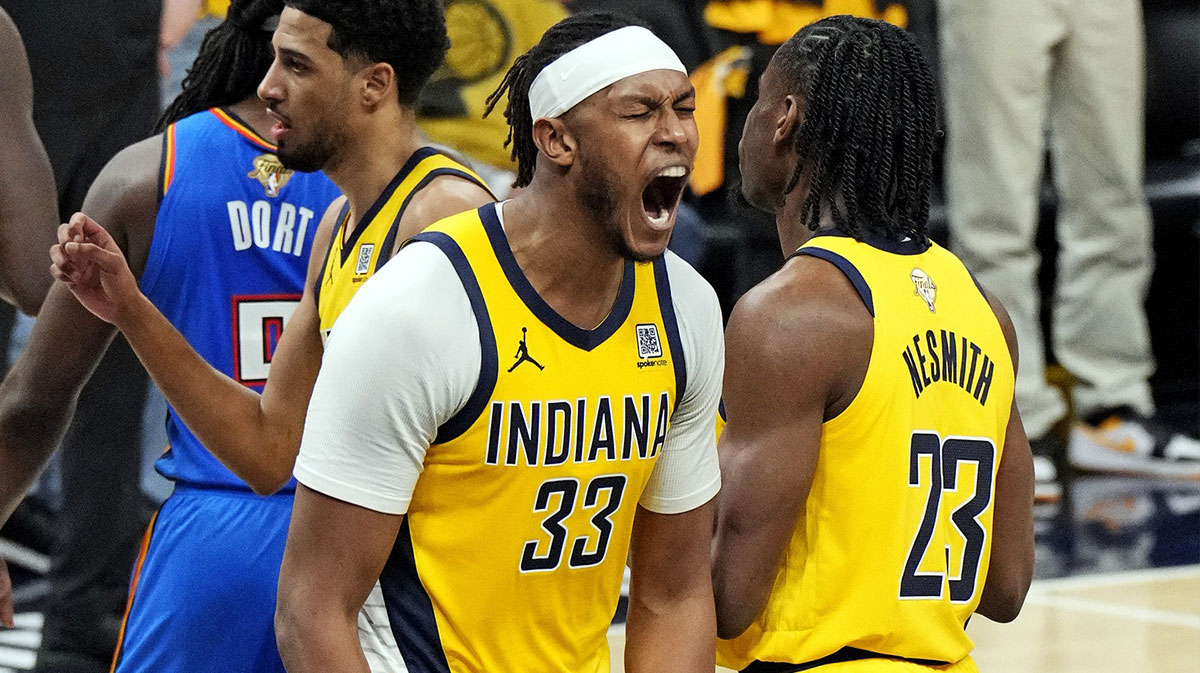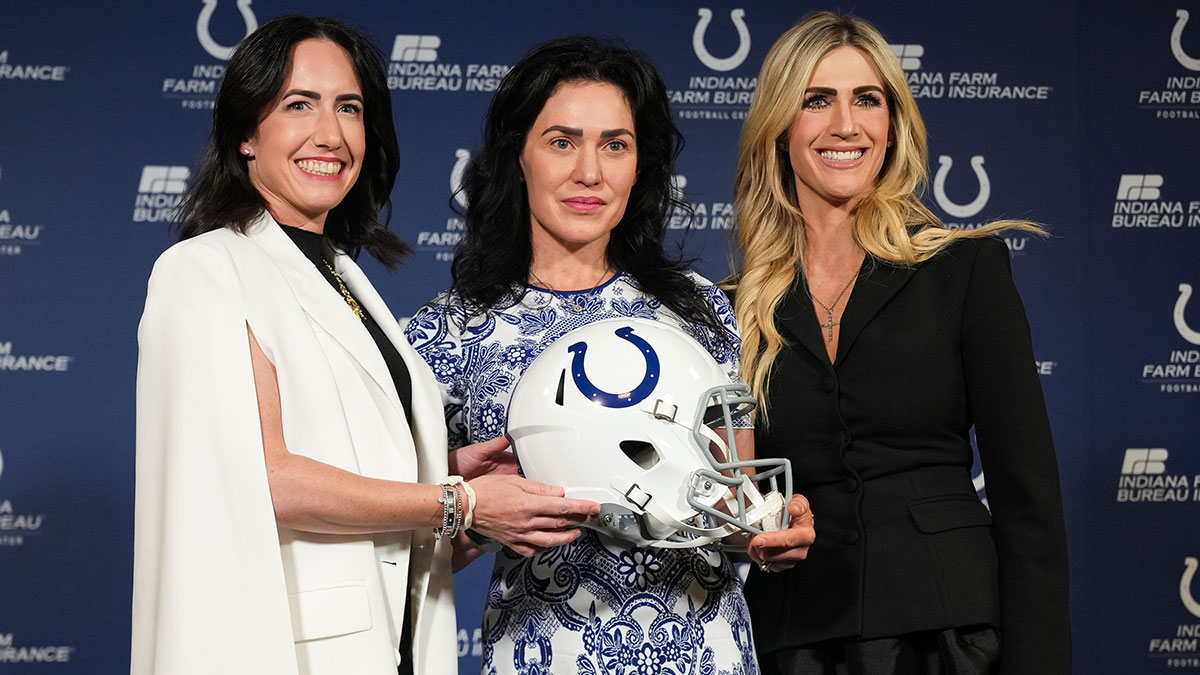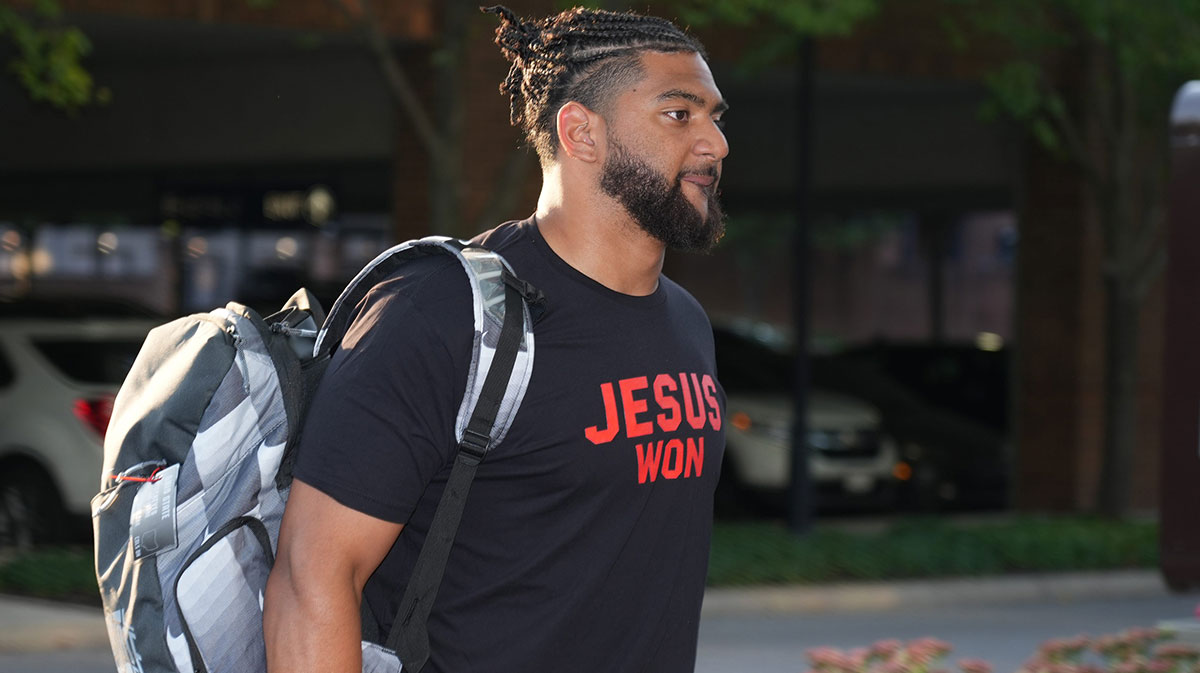The Indianapolis Colts remain to be of the most storied franchises in the history of the NFL. Some excellent decision-making and strategic trades pulled off by the front office changed the fate and contributed to the rich winning culture that the franchise now possesses today.
The margins between the trades below are relatively thin because these all had significant implications for the progression of the Colts organization through the years.
Here are some of the best trades executed by the Indianapolis Colts:
5. Marvin Harrison
The Indianapolis Colts thought they had a franchise quarterback on their hands when they selected hometown hero Jeffrey George with the top pick in the 1990 NFL Draft. However, it turned out that the former Illinois product wouldn't stay long in Indianapolis.
Before the 1993 season, he refused to report to training camp and only returned to the team when owner Jim Irsay made it clear that George would have to pay a huge penalty fee for breach of contract if he did not get back to work. The Colts eventually decided to part ways and traded George to the Atlanta Falcons after the 1993 season.
George went to the Falcons in exchange for a first and third-round pick in 1994 and a conditional pick in 1996. The Colts swapped those 1994 picks with the Los Angeles Rams to move up and select linebacker Trev Alberts with the fifth overall pick.
The conditional pick in 1996 then turned into a first-rounder after George played more than 75 percent of Atlanta's snaps which resulted in a 9-7 record by the Falcons in the 1995 season.
George's performance gave way to the Colts drafting wide receiver Marvin Harrison with the 19th pick in the 1996 NFL Draft. He went on to be paired with quarterback Peyton Manning and considered as one of the greatest and most productive wide receivers in NFL history.
He became a two-time NFL receiving yards leader, three-time first-team All-Pro, eight-time Pro Bowler, and a Super Bowl XLI champion. Harrison held the record for most receptions in a single season with 143 for over ten years before it was broken by New Orleans Saints wideout Michael Thomas in 2019.
4. Eric Dickerson
Running back Eric Dickerson was in the middle of having a fruitful career with the Los Angeles Rams when contract disputes heightened between the two sides back in the 1985 season. After playing just three games for the Rams into the strike-shortened 1987 season, Dickerson was eventually traded to the Indianapolis Colts in a multi-player mega-trade that was one of the biggest in league history.
In a three-team deal, the Colts traded unsigned draftee linebacker Cornelius Bennett, to the Buffalo Bills for their first-round pick in 1988, first and second-round picks in 1989, and running back Greg Bell. The Colts, in turn, traded Bell and the three draft choices from Buffalo plus their own first and second-round picks in 1988, a second-round pick in 1989, and running back Owen Gill to the Rams for Dickerson. With the picks, the Rams took linebacker Fred Strickland, running back Gaston Green, wide receiver Aaron Cox, linebacker Frank Stams, defensive back Darryl Henley, and running back Cleveland Gary.
Dickerson continued his stellar career with the Colts and added more accolades to his already stacked resume. He garnered another NFL rushing yards leader award in 1988, three-straight Pro Bowl appearances from 1987 to 1989, and two-straight All-Pro selections from 1987 to 1988 before moving to the Los Angeles Raiders in 1992.
3. Vontae Davis
On August 26, 2012, the Miami Dolphins traded cornerback Vontae Davis to the Indianapolis Colts in exchange for their second-round pick (54th overall) and a conditional sixth-round pick in the 2013 NFL Draft. The Miami Dolphins used the second-round pick they received in the trade to draft cornerback Jamar Taylor. However, they did not receive a conditional sixth-round pick after Davis failed to exceed more than 65% of the Colts' defensive snaps in 2012.
The trade turned out to heavily favor the Colts and marked the beginning of a six-year partnership between Davis and the team. The Illinois product spent his most productive seasons in Indianapolis which saw him earn two consecutive trips to the Pro Bowl in 2014 and 2015.
On November 8, 2017, he needed to have surgery to repair a lingering groin injury that was sustained in that season's preseason games. A day later, the team announced that they would be releasing Davis. Three months later, he signed a bargain one-year deal to play for the Buffalo Bills.
An abrupt turn of events happened when Davis had a change of heart for the game of football. During a September 16, 2018 game against the Los Angeles Chargers, he decided to hang his cleats and removed himself from play during the first half, stating he was “done.”
The 32-year old player could've easily still played until today if he wanted to. Nonetheless, it seemed like he was at peace with his decision which is what mattered the most. His contributions to the Colts in a relatively short time was still instrumental for the franchise.
2. Booger McFarland
On October 17, 2006, eight-year veteran defensive tackle Booger McFarland was traded by the Tampa Bay Buccaneers to the Indianapolis Colts for a second-round pick in the 2007 NFL Draft. The trade reunited him with head coach Tony Dungy, who was also his shot-caller in Tampa Bay during his first three seasons.
At the time of the trade, the Colts ranked dead last in the league in run defense which allowed opponents to exceed over 116 yards-per-game. The team lost defensive tackle Corey Simon to a season-ending injury the week before. Another defensive tackle in Montae Reagor was also placed on the injured reserve list due to injuries sustained from a vehicular accident.
McFarland was the last piece that the Colts needed in order to form a Super Bowl-seeking roster. He eventually finished the regular season with 33 tackles and 2.5 sacks. In the playoffs, the Colts defense became stifling and limited their opponents to lower rushing yards per game.
McFarland contributed a sack in the Super Bowl XLI game which the Colts won over the Chicago Bears, 29–17, resulting in the second Super Bowl ring of McFarland's career. His nine-year career ended when he suffered a severe knee injury in the following season's training camp.
Basically, a second-rounder in exchange for a Super Bowl XLI title went down for the Colts.
1. Marshall Faulk trade gave the keys to Peyton Manning
The Indianapolis Colts drafted Tennessee quarterback Peyton Manning with the first overall pick in the 1998 NFL Draft. Manning went on to become the franchise leader in virtually every passing category and set several records to his name. He was paired with a five-year star running back in Marshall Faulk who just bagged his third Pro Bowl appearance at the time.
The Colts were a struggling team that went 3-13 in head coach Jim Mora's 1998 debut season even with Manning having set rookie records for both touchdown passes with 26, and interceptions with 28. He was also injury-free and played all 16 games but still failed to power the team over the slump.
In 1999, Faulk had missed practices and was considering holding out for a new contract. Colts president Bill Polian realized that the running back was the odd man out and decided to trade him to the St. Louis Rams in exchange for second and fifth-round picks in the upcoming draft. The Colts then slotted in their 1999 first-round pick, Edgerrin James, into the starting running back role.
The trade turned out to pave the way for Manning to maximize his potential and reach his ceiling. His development built a foundation that would send the Colts to the playoffs 11 out of 12 years from 1999 to 2010. Their multiple postseason runs eventually resulted in a Super Bowl XLI title and Manning went on to become the face of the league for several years. The 14-time Pro Bowler wouldn't be the NFL legend that he is today if it wasn't for the Faulk trade.

